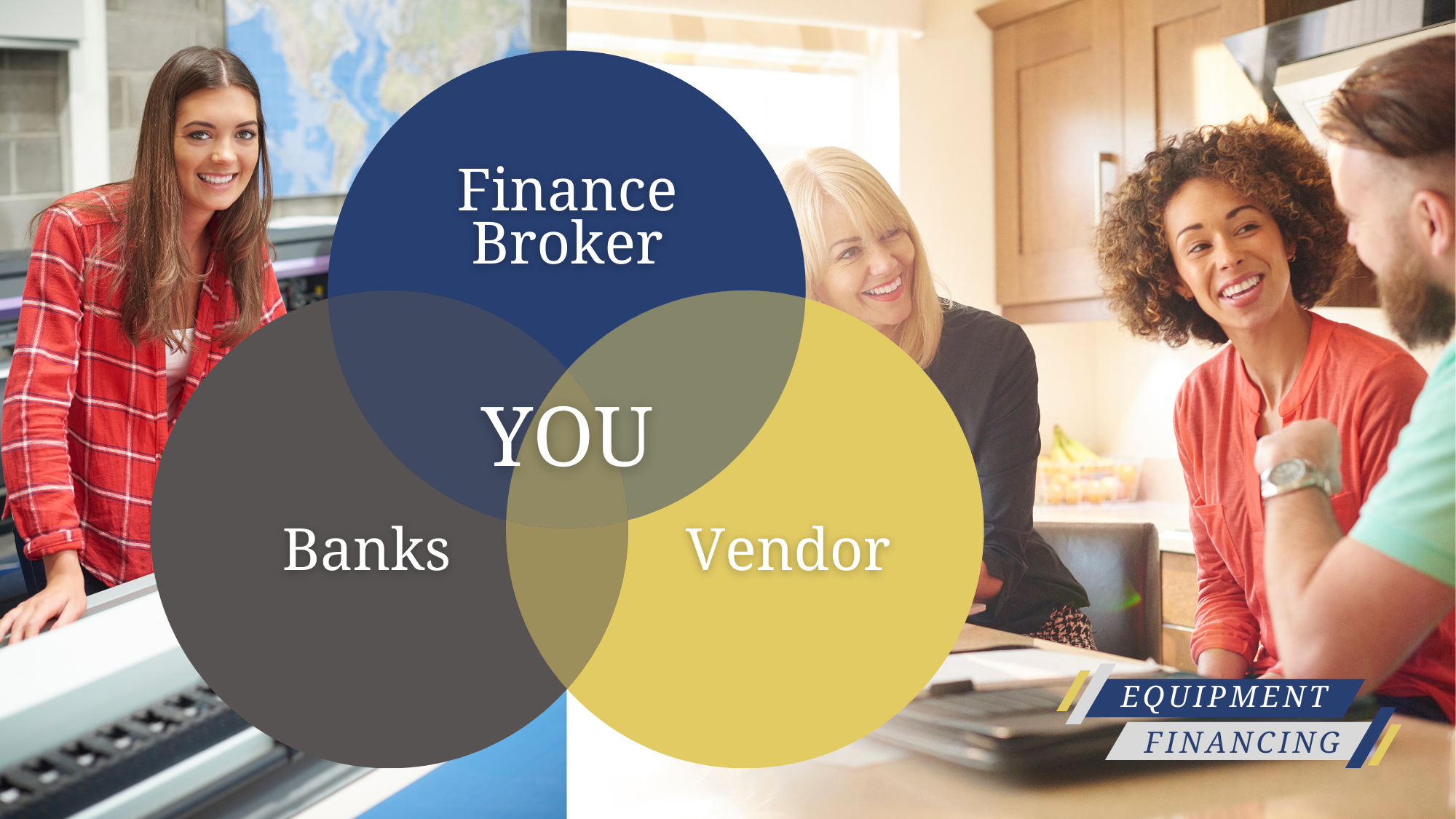If you’ve been in the customization business — whether it’s in the custom apparel, signage, promotional products or something else, there’s a good chance you’ve financed equipment.
And if you’re a startup just getting into the business, there’s probably a piece of equipment on your wishlist — and you may be wondering how to actually acquire it.
That’s why it’s important that you understand how the process works when you decide to finance or lease. And what the pros and cons are between going to your local bank vs. a company your vendor recommends vs. a general finance broker.
Scenario No. 1: Equipment first
The vast majority of the time, for first time commercial equipment buyers anyway, the hunt for the right piece of equipment comes first.
If you were planning on creating custom products using a commercial engraving machine, for example, you would probably take this standard route:
- Study the equipment online, including price range
- Identify the equipment you’re interested in
- Shop a few vendors that sell them and choose one that will do the job for sale by a company that seems like they can support you
That vendor will normally have a sale price and a lease/finance price on their website or provide you that information in a quote.
If you choose financing, they will provide a link to a leasing company that they have a business relationship with and will coordinate your application directly with them. Eventually you’ll get the good news that you’ve been financed and find out if you qualified for the quote payment.
The good news in this scenario is that both the bank or leasing company and the vendor are working together to get you that equipment. And that can pay off if you have less than stellar credit because the leasing company is weighing all the business that the vendor brings them and might be more open to financing you as part of the entirety of their customer base.
Scenario No. 2: Bank first
If you’re just starting out, you may have an SBA loan in hand, or are using the equity in your home as funding for your equipment purchase.
There are pros and cons to either of those situations, of course, but the principal is the same. And technically, you still start with either general information on your equipment or a specific published price in mind. But the process looks different now :
- Study the equipment online, including price range
- Identify the equipment you’re interested in
- Get preapproved for the purchase amount or more
- Approach your potential vendors with the confidence that you can get financed and now can negotiate for the best deal
But don’t rely on price only, of course — you’re going to need high quality training and support, so keep those offerings in the mix when you choose your vendor! There are some big advantages in this situation because you know the payment and what you can qualify for, and now you get to shop for the best deal you know you can afford.
Even better, your bank’s goal is to support your financial future because that relationship will benefit them in the long run. Your banker is on your side, or at least should be watching out for your finances from the inside.
Scenario No. 3: Finance broker
A broker can, in some ways, offer an even more attractive finance option than your business bank can. When you go to your business bank, whether they are a local bank or a branch of one of the bigger institutions, they are limited to the financial instruments and options they can offer you.
For example, a visit to Chase Bank will never result in them finding you a better deal at Bank of America. They may work very hard to get you a great rate and terms, but they are limited in where they can look for those.
A finance broker’s job description is to develop relationships with multiple banks and other kinds of financial institutions specifically so they can help you shop for your loan just like you shopped for your equipment.
Let’s say you’re in the market for a new commercial direct-to film printer and have identified several options for around $20,000. What’s next? Easy! You’ll talk to each vendor involved about the equipment they offer, support and training they give and then the price they will sell for.
A finance broker does that with your loan. You fill out a single credit application, and they will shop for you. They will approach multiple banks and talk about the terms they offer, interest rates they’ll qualify you for and find the best to service your equipment financing.
Which is right for you?
There are clearly pros and cons to each of these scenarios. You may just be more comfortable with the apparent all-in-one approach of getting your equipment and the financing done in one place.
That relationship with a local bank may be worth you using them for equipment financing in spite of potentially higher rates or shorter terms. Or you may decide that using a finance broker gives you the best chance at a competitive price on equipment and your loan, and that’s what you really need for your business.
It’s up to you! But whatever you choose, keep the following in mind:
Realities of the equipment finance triangle
When you finance equipment, no matter which scenario you choose, your funding source is paying the vendor for the machinery. Your financial relationship from then on is with the funding source. If you stop paying your loan because it turns out your business isn’t doing as well you thought it would — that is between you and your “bank.” Not the vendor.
Stopping payment on a loan will not impact the company you bought the equipment from; it will only impact your credit. And if you arrange to return the equipment to the vendor, they or you have to pay off the loan for you to be released from that liability.
If you have financed a home, it doesn’t matter why you stop making payments. The people you bought from, the agent who helped you find it and the builder of the home are no longer part of the equation. It’s between you and mortgage company.
In many ways that’s like financing equipment for your business.





